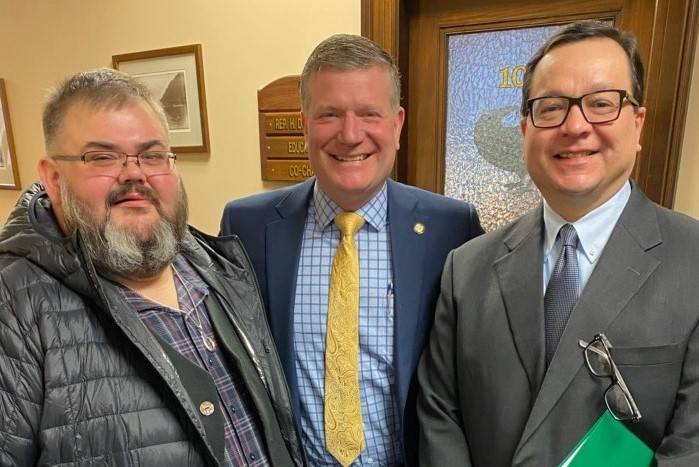A bill that would require the state of Alaska to formally recognize federally recognized tribes in the state is moving through the Legislature with broad bipartisan support.
House Bill 221 is sponsored by Rep. Chuck Kopp, R-Anchorage, and now has 17 Democratic, Republican and Independent co-sponsors. It would enshrine in state law what has been the de facto status of the 229 tribes in the state for years.
“We work with the State of Alaska on things like (Village Public Safety Officer) program and Head Start,” said Richard Chalyee Éesh Peterson, president of the Central Council of Tlingit and Haida Indian Tribes of Alaska. Though the state does not officially recognize tribal sovereignty, the state does at times do things which in effect acknowledge a tribes sovereign status.
“We have to sign waivers of sovereignty when (work with the state),” Peterson said. “It’s always been a little awkward when we sign those.”
Peterson said the bill was largely symbolic and that it wouldn’t change much of how tribal governments already operate. But he didn’t diminish the importance of that symbolism.
“Just a simple act of recognition can heal decades of hurt,” Peterson said. “One of the things that will happen for the larger community of Alaska, this will normalize the thought of tribes as sovereigns.”
But even as the state has tacitly recognized tribal sovereignty in the past, Alaska has been wary of actually acknowledging the presences of those entities within the state, according to Kopp.
“I think it comes down to a fear based in a sense of if we recognize another sovereign entity that the federal government recognizes, are we losing some power, some authority as a state,” Kopp said.
Beyond symbolism, there are financial benefits to the state as well. Federally recognized tribes receive funding from the federal government for services they provide to their citizens, relieving the state of some financial burden.
Under current laws, jurisdictional conflicts complicate tribes’ abilities to receive federal funds, said Ken Truitt, a staff member in Kopp’s office. Recognizing a tribe’s sovereignty would clarify those roles and allow both the state and tribes to work with the federal government for additional funding for things like public safety programs, Truit said.
“The lack of recognition just creates a roadblock,” Truitt said. “Getting more resources isn’t going to magically happen because of this bill, but it’s our hope this helps to lift that roadblock.”
Peterson said he recognized there was a financial component to tribal recognition, and said the state’s budgetary crisis probably motivated the state to look to tribes for additional funding. But he doesn’t believe that was the only consideration.
“I think (Kopp) comes from a very sincere place,” Peterson said. “We want to work together for a stronger Alaska. Healthy tribes make healthy communities.”
• Contact reporter Peter Segall at 523-2228 or psegall@juneauempire.com.

